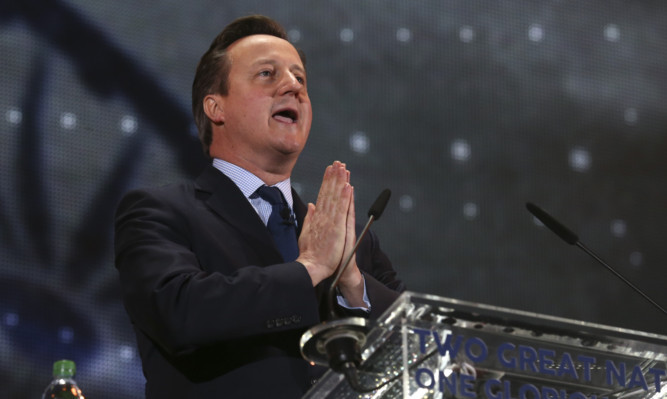“But the Emperor has no clothes on at all,” cried the young boy in the fairy tale, thus destroying the illusion and exposing the emptiness of power and privilege.
David Cameron’s European platform is just as insubstantial as the fabled Emperor’s imaginary new suit!
Two weeks ago he set out his final demands in a letter to European Council President Donald Tusk. Recent tragic events in Paris have since dominated the news cycle and thus kept the political examination of his position to a bare minimum luckily for the Prime Minister.
The spatchcock nature of Cameron’s position is illustrated by a comparison of the final four demands in the letter with a draft version of the same platform previously briefed by Downing Street to the Tory Party house journal, the Daily Telegraph. These appeared in the edition of October 10, exactly one month before the official version saw the light of day.
A comparison between these two sets of demands demonstrates that, far from representing a considered and consistent platform to improve the UK’s status within the European Union, the “list of four” is little more than a hastily cobbled together fix to save the face (and perhaps the political career) of the Prime Minister.
Thus, after their “road test” in the Daily Telegraph, only two of the four demands remained unaltered.
These were, firstly that the aspiration towards “ever closer union” expressed in the preamble to many EU Treaties would explicitly not apply to the UK and secondly a statement that the euro should not become the official currency of the Union.
Since the “ever closer union “ phrase is just a hope with no legal force and the euro is manifestly not the currency of nine European Union members then these two demands should present little difficulty to any country in Europe.
Then things get really interesting. Dropped between the leaked version to the Telegraph and the final letter to Tusk were references to a “red card” system for European Union. This was presumably because no-one has the slightest idea what it means! Also disappearing from the final text was the demand that the non-eurozone countries should never be disadvantaged by the eurozone members.
By the time of the release of the formal letter they were replaced by two “new” demands. In the first a plea for European competitiveness is highlighted.
This is a subject of great importance but something that everyone could agree with and therefore not so much a demand as an exercise in wishful thinking!
And then finally appeared what Cameron’s cronies believe could be the clincher; the reference to benefit restrictions. This is the idea that people will now have to earn social entitlements for four years in this country before any receipt of benefits.
It certainly sounds tough but closer examination renders it meaningless. Firstly the overwhelming majority of the three million EU born immigrants to the UK are working or studying.
Their employment rate and work rate is much higher than that of our indigenous population. Of course many get in-work support such as tax credits but these are the very benefits that the Chancellor is busy removing wholesale from everyone!
Cameron’s progress on Europe resembles more of a high wire act than a substantial foundation on which to base a case for a favourable vote in a national referendum.
The SNP are correct to spell out a different kind of approach.
The way to inspire people in the upcoming referendum is not to identify the small or irrelevant issues, but identifying the big issues where it should be doing more.
For example, how about imagining a Europe which acted seriously on climate change; a Europe which legislated effectively in favour of a social contract to protect all of its citizens from low pay or exploitation; a Europe which recognised the pain being caused by austerity economics and the deflationary effect of tight spending limits; a Europe which promoted great infrastructure projects to galvanise recovery and a Europe which acted with solidarity when confronted with a mass movement of people such as the present refugee crisis?
That is a menu for a people’s Europe and one well worth voting for.
It is a vision of future in which it would be worth the ancient European nation of Scotland seeking to play a substantial part.
